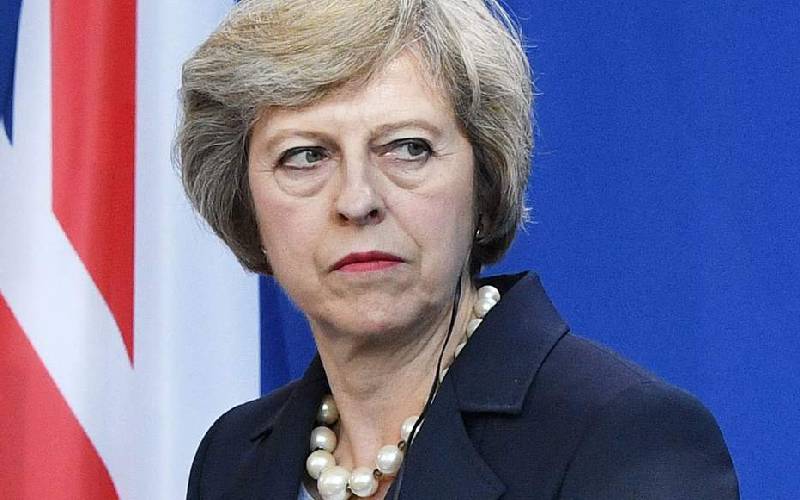
UK Prime Minister Theresa May. [Photo, File]
The word ‘Brexit’ is probably the latest addition to the English dictionary. Two years of debating and planning have ended in stalemate, and it now appears that Britain will crash out of the European Community on March 29, rather than leave with a dignified exit. The consequences of non agreement appear disastrous, but the most threatening is that of the restoration of a hard border between Ireland – EU member – and Northern Ireland, which is legally part of the UK, but will thereafter not enjoy the benefits of membership like the other 27 countries that are in the union.